
AlphaLISA Mouse and Rat C-Peptide Detection Kit, 5,000 Assay Points
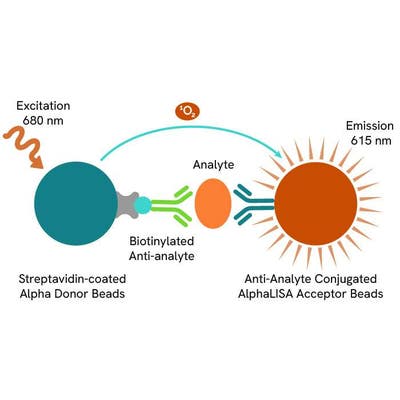

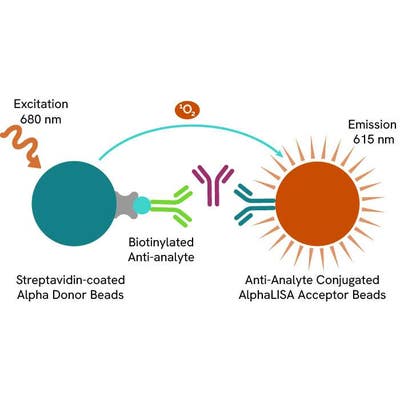 View All
View All
AlphaLISA Mouse and Rat C-Peptide Detection Kit, 5,000 Assay Points
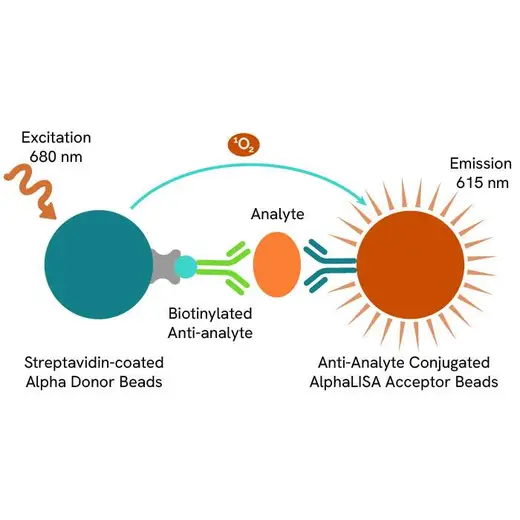

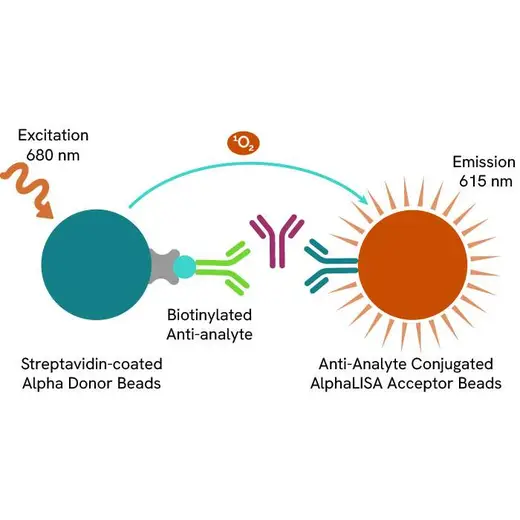




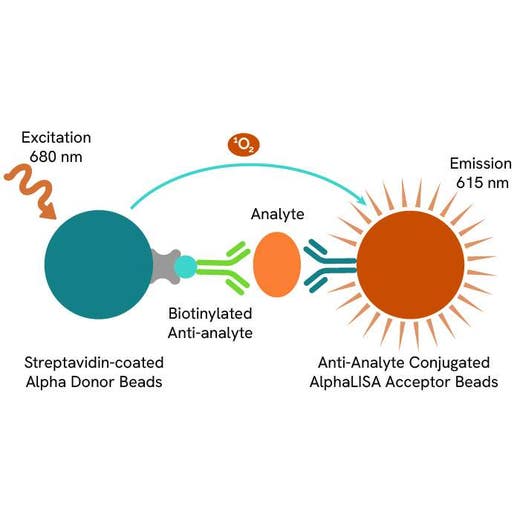

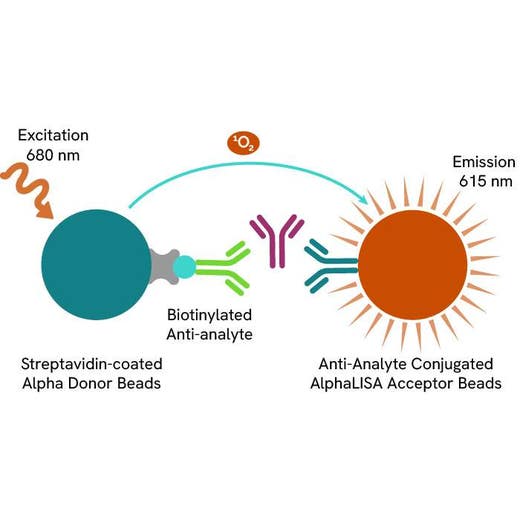




The AlphaLISA™ Mouse/Rat Connecting Peptide (C-Peptide) Detection Kit is designed for detection and quantitation of mouse or rat C-Peptide in buffered solution in a homogeneous (no-wash steps, no separation steps) assay.
For research use only. Not for use in diagnostic procedures. All products to be used in accordance with applicable laws and regulations including without limitation, consumption and disposal requirements under European REACH regulations (EC 1907/2006).
| Feature | Specification |
|---|---|
| Application | Protein Quantification |
| Dynamic Range | 11.1 - 30,000 pg/mL |
| Limit of Detection | 11.1 pg/mL |
| Sample Volume | 5 µL |
The AlphaLISA™ Mouse/Rat Connecting Peptide (C-Peptide) Detection Kit is designed for detection and quantitation of mouse or rat C-Peptide in buffered solution in a homogeneous (no-wash steps, no separation steps) assay.
For research use only. Not for use in diagnostic procedures. All products to be used in accordance with applicable laws and regulations including without limitation, consumption and disposal requirements under European REACH regulations (EC 1907/2006).







AlphaLISA Mouse and Rat C-Peptide Detection Kit, 5,000 Assay Points







AlphaLISA Mouse and Rat C-Peptide Detection Kit, 5,000 Assay Points







Product information
Overview
Formats:
- Our 500 assay point kit allows you to run 500 wells in 96-well or 384-well format, using a 50 µL reaction volume (5 µL of sample).
- Our 5,000 assay point kit allows you to run 5,000 wells in 96-well or 384-well format, using a 50 µL reaction volume (5 µL of sample).
Features:
- No-wash steps, no separation steps
- ELISA alternative technology
- Sensitive detection
- Broad sample compatibility
- Small sample volume
- Results in less than 3 hours
- Half the time of an ELISA assay
Mature Connecting Peptide (C-Peptide) is a 31 amino acid peptide that is a product from the proteolytic processing of proinsulin. In mouse and rat, contrary to humans, two isoforms of C-Peptide are present (isoforms 1 and 2). Through its G-protein coupled membrane receptor, C-Peptide activates Ca2+-dependent intracellular signaling pathways, resulting in subsequent activation of both Na+/K+ ATPase and endothelial nitric oxide synthase. C-Peptide and insulin are co-secreted in equimolar amounts in the bloodstream by pancreatic beta cells of the islets of Langerhans. However, C-Peptide has a longer half-life than insulin in serum, making it a good indicator of endogenous insulin production. A lack of endogenous C-Peptide contributes to development of long-term microvascular complications in the nerves, the kidneys, and the retina in Type 1 diabetes patients. C-Peptide has been considered as a possible therapy to prevent long-term complications of diabetes.
AlphaLISA technology allows the detection of molecules of interest in a no-wash, highly sensitive, quantitative assay. In an AlphaLISA assay, a biotinylated anti-analyte antibody binds to the Streptavidin-coated Donor beads while another anti-analyte antibody is conjugated to AlphaLISA Acceptor beads. In the presence of the analyte, the beads come into close proximity. The excitation of the Donor beads causes the release of singlet oxygen molecules that triggers a cascade of energy transfer in the Acceptor beads, resulting in a sharp peak of light emission at 615 nm.
Specifications
| Application |
Protein Quantification
|
|---|---|
| Automation Compatible |
Yes
|
| Brand |
AlphaLISA
|
| Detection Modality |
Alpha
|
| Dynamic Range |
11.1 - 30,000 pg/mL
|
| Limit of Detection |
11.1 pg/mL
|
| Product Group |
Kit
|
| Sample Volume |
5 µL
|
| Shipping Conditions |
Shipped in Blue Ice
|
| Target |
C-peptide
|
| Target Class |
Biomarkers
|
| Target Species |
Mouse
|
| Technology |
Alpha
|
| Therapeutic Area |
Metabolic
|
| Unit Size |
5,000 Assay Points
|
Image gallery






AlphaLISA Mouse and Rat C-Peptide Detection Kit, 5,000 Assay Points






AlphaLISA Mouse and Rat C-Peptide Detection Kit, 5,000 Assay Points






Video gallery

AlphaLISA Mouse and Rat C-Peptide Detection Kit, 5,000 Assay Points

AlphaLISA Mouse and Rat C-Peptide Detection Kit, 5,000 Assay Points

Resources
Are you looking for resources, click on the resource type to explore further.


How can we help you?
We are here to answer your questions.






























